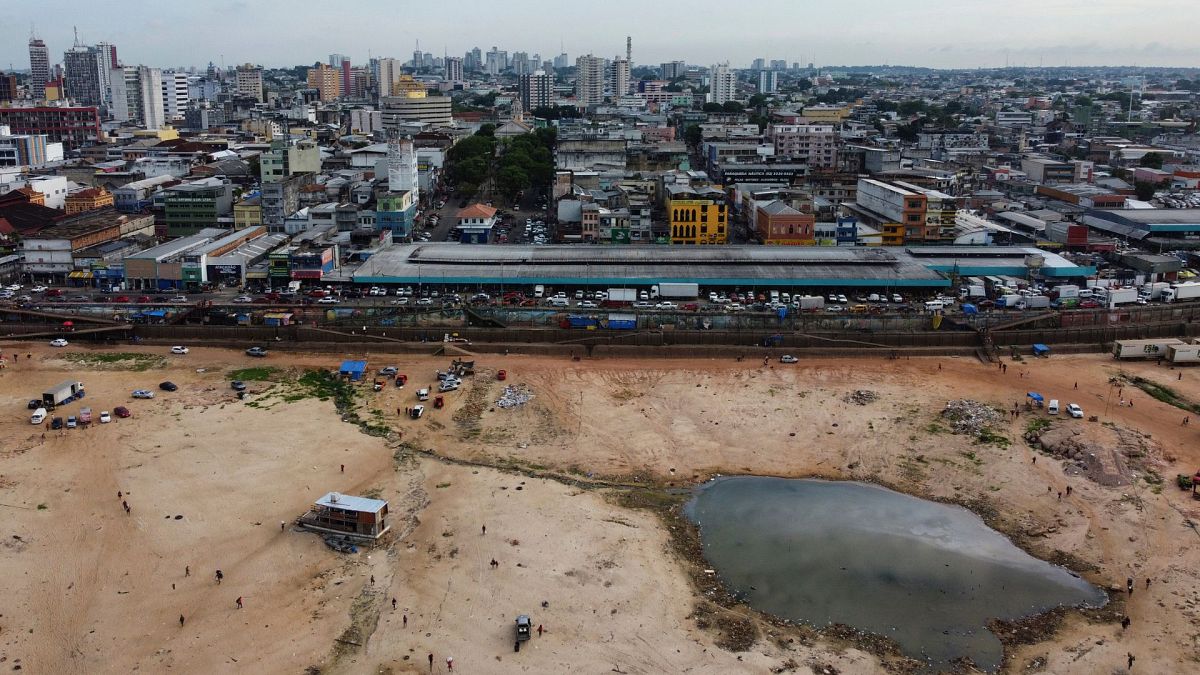Last year was the driest for global rivers in 30 years, while glaciers suffered the largest mass loss in 50 years.
Last year was the driest year for global rivers in 33 years, warns a new report coordinated by the World Meteorological Organization (WMO).
According to the State of Global Water Resources report, the past five years have seen below-normal conditions for river flows and reservoir inflows worldwide, increasing stress on global water supplies.
The annual report paints the big picture of the world’s water cycle, from extreme floods to extreme droughts, from rivers and reservoirs to glaciers and groundwater. It brings together data from meteorological and hydrological services, data centres, hydrological modelling community members and supporting organisations such as NASA and the German Research Centre for Geosciences.
“Water is the canary in the coalmine of climate change,” says WMO Secretary-General Celeste Saulo. “We receive distress signals in the form of increasingly extreme rainfall, floods and droughts which wreak a heavy toll on lives, ecosystems and economies. Melting ice and glaciers threaten long-term water security for many millions of people. And yet we are not taking the necessary urgent action.”
What’s happening to the world’s rivers?
2023 showed mostly drier-than-normal river discharge – the volume of water flowing through a river at a specific point in time. Over 50 per cent of global catchment areas showed ‘abnormal’ conditions.
Drought and reduced river discharge affected large parts of Northern, Central and South America, with the Mississippi showing record low water levels and the Amazon recording its lowest-ever level. Asian and Oceanian river basins the Ganges, Brahmaputra and Mekong had lower-than-normal conditions over almost their entire territories.
But other rivers and reservoirs flooded with devastating impact: the east coast of Africa had above-normal discharge and flooding, as did the North Island of New Zealand and the Philippines.
In Europe, the UK, Ireland, Finland and parts of Sweden all had above-normal discharge levels.
The climate crisis is driving extreme changes in the world’s water cycle
Last year was the world’s hottest year on record, with scientists concurring that Earth’s extreme temperatures are being driven by the climate crisis. The WMO report notes that 2023’s combination of both prolonged droughts and devastating floods can be attributed to both the climate crisis and the naturally occurring La Niña to El Niño transition.
The climate crisis is making such natural weather phenomena more extreme, say scientists, with impacts exacerbated and patterns increasingly erratic, making them harder to predict.
Glaciers saw the highest rate of water loss for 50 years
The State of Global Water Resources report considers rivers alongside reservoirs, lakes, soil, weather patterns and glaciers – which last year lost 600 gigatonnes of water.
Extreme melting patterns were observed in western North America and the European Alps, where Switzerland’s glaciers lost about 10 per cent of their volume over the past two years.
Snow cover in the northern hemisphere has been decreasing in late spring and summer, observes the report, with last year’s May snow cover the eighth lowest on record.
The Global South is underrepresented in water data monitoring
The WMO notes that while it has made improvements in data collection, Africa, South America and Asia remain underrepresented in hydrological data collection, highlighting the need for improved monitoring and data sharing, particularly in the Global South.
“Far too little is known about the true state of the world’s freshwater resources,” says WMO Secretary-General Celeste Saulo. “We cannot manage what we do not measure.”
Checkout latest world news below links :
World News || Latest News || U.S. News
The post World’s rivers drying up: World Meteorological Organization issues sta appeared first on WorldNewsEra.

